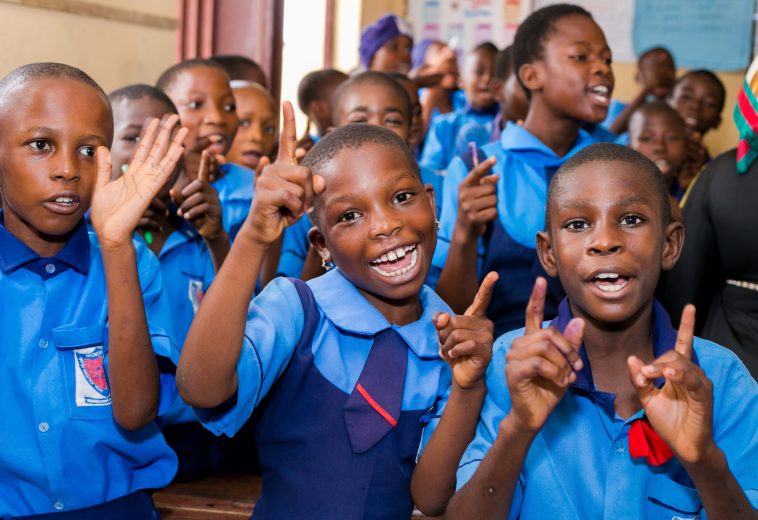How can Africa, a continent bursting with potential, harness the power of its young population to secure a prosperous future? With a demographic dividend that stands as its most valuable resource, the true potential of Africa’s youth can only be realized by enabling them to reach their full potential. This article looks into the crucial realm of African youth empowerment programs, highlighting successful initiatives, outlining current challenges, and examining the long-term socioeconomic benefits of investing in young minds.
Africa is home to the youngest population in the world, with over 60% of its people under the age of 25. This youthful demographic presents a unique opportunity for economic growth and social development. However, this potential can only be unlocked through comprehensive empowerment programs that provide education, skills training, and opportunities for entrepreneurship and leadership.
Across Africa, a multitude of programs are equipping young people with the tools they need to thrive.
YouthConnekt Africa: Launched by Rwanda in 2012, this continental initiative connects young people with peers, mentors, and skill development opportunities. It fosters entrepreneurship, leadership training, and access to financing, empowering young Africans to become active participants in their economies.
Grand Africa Initiative (GAIN): This Pan-African NGO focuses on training and mentoring young men and women (15-35 years old) in digital literacy, leadership skills, and employability. By equipping youth with the tools they need to navigate the job market or launch their own businesses, GAIN empowers them to achieve self-sufficiency and contribute to Africa’s development.
Slum2School Nigeria: This organization tackles the issue of educational access for underprivileged youth in urban slums. They provide scholarships, bridge courses, and psychosocial support, enabling young people to overcome barriers and pursue their education. Success stories like Nneka, a young woman who went from selling tomatoes on the streets to becoming a medical doctor, showcase the transformative power of such initiatives.
Programmes Fostering Remarkable Success Stories in Africa:
Yes, I Can Schools (Ghana): Founded by Bernhard Peters, these innovative schools provide holistic education to underprivileged youth in rural communities. By integrating technology, entrepreneurship training, and practical skills development into the curriculum, Yes I Can Schools empowers students to become changemakers in their communities. Graduates like Josephine, who established a thriving poultry farm, demonstrate the program’s ability to unlock potential.
Ubisecure (Rwanda): This youth-led tech company provides digital security solutions in Rwanda and beyond. Founded by Jean Bosco Nzoshimigiro and his team, Ubisecure is a testament to the entrepreneurial spirit and tech talent nurtured by youth empowerment programs. Their success story inspires other young Africans to pursue innovative solutions to local and regional challenges.
Akirachix (Kenya): This all-female coding school empowers young women in Kenya with the skills to excel in the tech industry. Through intensive training programs, Akirachix equips women to become software developers, web designers, and entrepreneurs. Graduates like Esther Likumba, who now works as a lead developer at a major Kenyan tech company, showcase the transformative potential of investing in young women’s education and technological skills.
READ ALSO: The Role of African Youths in Environmental Stewardship
However, the youth empowerment programs face challenges such as limited resources, lack of infrastructure, and cultural barriers but despite these shortcomings, investing in these programs can lead to economic growth, social development, and peace and stability. Empowered youth are more likely to secure jobs, start businesses, and contribute to economic growth. Infrastructure development is crucial to ensure equitable access to technology and internet connectivity. Advocacy efforts are also needed to challenge traditional gender roles and ensure girls’ full participation in education and entrepreneurship initiatives. Overall, investing in youth empowerment programs can lead to a more prosperous Africa.
A way forward suggests that to support youth empowerment in Africa, the following must be considered: donating to organizations like the African Union Youth Division, Young Professionals for Agricultural Development, and Ashesi University, volunteering your skills to youth empowerment programs, raising awareness about the importance of youth empowerment, and supporting businesses committed to youth development. Mentorship programs provide guidance, support, and role models for young people, fostering career development opportunities. Entrepreneurship and innovation programs provide funding, business training, and mentorship for young entrepreneurs, nurturing a new generation of business leaders. Mental health programs also play a crucial role in empowering young people, promoting well-being and enabling them to reach their full potential.
Empowering Africa’s youth is not a one-size-fits-all solution. Effective programs must be tailored to address the specific needs and challenges of each region and community. However, by investing in education, skills development, and leadership training, we can empower young Africans to become active participants in shaping their destinies and the future of their continent. As Nelson Mandela aptly said, “Education is the most powerful weapon which you can use to change the world.” A continent where young minds can flourish, brimming with innovation and a thirst for positive change, is a continent poised for a brighter tomorrow. Let us all be a part of nurturing this potential and ensuring that Africa’s youth have the tools and resources they need to not just dream big but to make those dreams a reality.


